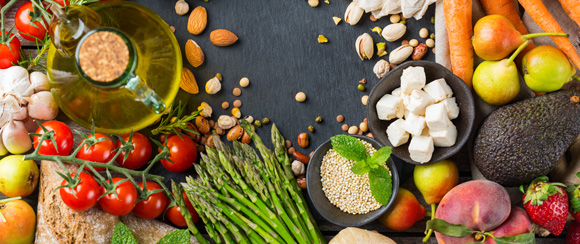Fall is upon us, kids are back in school, and people are inevitably going to get sick. In case you missed it, last month, I wrote an article on the causes of the common cold, and the role of nutrition in treatment and prevention. Now, I will outline what your two main types of immunity are, and the specific nutrients that support them.
Immune system and infection
During an infection, your immune system ramps up in a step-wise process. Your immune system can be divided into two distinct types, that communicate with one another.
Innate immunity is your first line of defence against a foreign invader, such as a virus or bacteria. If a microbe gets past your skin or mucous barriers, they encounter innate immune cells that recognize generic molecular patterns on potentially dangerous virus or bacteria. As they try to fight it off, they communicate with your adaptive immune system.
Adaptive immunity is a secondary response to infection. It takes about 4-7 days to initiate an adaptive response. Over the course of about two weeks, memory cells are created, including the ones that generate antibodies (B-cells), and the ones that target viral or bacterially infected cells (T-cells). Immune memory is created, so that the second time you encounter the same (or similar) infection, your immune system is primed to react faster and more efficient. Creation of immune memory is the same principle behind vaccination.
Nutrients needed
Your body needs several key nutrients to maintain immune balance in health and disease, such as responding to an infection. A balanced and varied whole foods approach, such as the Mediterranean pattern of eating can provide all the nutrients discussed below.

Carbohydrates, fats, and proteins are macronutrients needed for energy. Also, activation of the immune system requires fatty acids (from dietary fat) and amino acids (from dietary protein) to create molecules necessary for an immune response. Choose a variety of whole food-based sources to ensure you get the right types of these macronutrients (i.e. complex carbohydrates, omega-3 and monounsaturated fats, essential amino acids), and the specific micronutrients (i.e. minerals, vitamins) discussed below.
Vitamin C and Vitamin E are both potent antioxidants which can help your body recover from an immune response. Vitamin C also is essential for collagen synthesis in wound repair, and is found in citrus fruits, bell peppers, and many green vegetables. Vitamin E is found in vegetable oils, nuts, seeds, and leafy greens.
Vitamin A and D regulate expression of genes in immune cells, helping their maturation and differentiation into specialized cells needed for an effective immune response. Vitamin D also regulates many anti-inflammatory processes in your body. Vitamin A foods include yellow, red, and green (leafy) vegetables, as well as dairy, eggs, and oily fish. Vitamin D is found in some foods, but supplementation is required to meet your recommended daily amounts.
Zinc, Selenium, Copper, Zinc, and Manganese are all minerals needed to make anti-oxidant proteins that support immune function. Zinc and Selenium in particular have many important functional, structural, and enzymatic roles in immunity. Mild deficiencies in either can leave you with defects in your adaptive and innate immune response. Diverse whole grains, legumes, fruits and vegetables, nuts and seeds will help you get all these nutrients.
Amino acids, Zinc, Folate, Iron, and Magnesium are all involved in creating building blocks for immune cells to replicate as they mount an immune response to an infection. Again, whole foods, and a variety!
Polyphenols are powerful plant-based compounds that can modulate your immune system and have anti-inflammatory roles. Berries, herbs, spices, cocoa, nuts, seeds, soy, beans, vegetables, olives, wine, coffee, and tea are all excellent sources of polyphenols.
The role of the Mediterranean diet
The nutrients discussed here can be obtained by following a Mediterranean style of eating rich in vegetables and fruits; and moderate amounts of whole grains, nuts, seeds, legumes, fish, and olive oil as the principal fat used in cooking.
The one nutrient that cannot be met with this approach is Vitamin D. In Fall and Winter, we do not get it from the Sun, making it especially important to take at this time of year. I recommend 2000 International Units (IU) per day for most people. Check with your Doctor to see what dose is appropriate for you.
There is really no replacement for a varied, whole-food dietary strategy to meet all your nutrient needs. However sometimes this is easier said than done, and largely based on your experience shopping, cooking, or trying new foods. Sometimes we are challenged with other obstacles to nutrition such as time, convenience, allergies, or medical conditions. That’s why we have a dietitian here at Preventous to help support you!
Let’s work together
Nutrition is notorious for web-based misinformation, and lately immune system related misinformation is also on the rise. Getting the right information has never been more important!
During my immunology and nutrition degrees, I learned that both are very much related to one another and have since become one of my main areas of expertise. I hope to be a resource for you in this time.
Dan Neuman
Registered Dietitian

